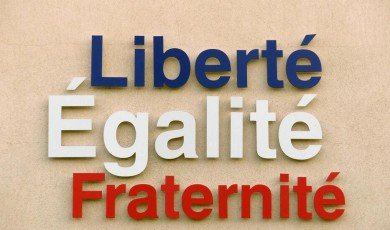
The History of Great Electoral Duels in the Fifth French Republic
The Fifth Republic of France, established in 1958, has provided the stage for some of the most memorable and dramatic electoral showdowns in political history. Presidential elections, often seen as personal battles between charismatic figures, have not only decided France's leadership but also reflected the social pulse, anxieties, and transformations of the nation. In this article, we will journey through the legendary duels that have marked the French Republic, analyzing the stakes, the personalities, and the legacies that these electoral confrontations have left behind.
From de Gaulle to Macron: A Retrospective on Electoral Battles
1965: Charles de Gaulle vs. François Mitterrand – The Inaugural Clash
The very first direct presidential election in France under the Fifth Republic set the tone for future duels. Charles de Gaulle, the emblematic leader of Free France and the architect of the new Republic, faced a surprising challenge from François Mitterrand, a left-wing candidate representing a coalition called the Federation of the Democratic and Socialist Left. De Gaulle expected easy victory, but Mitterrand forced a second round, bringing political suspense to French television screens for the first time. De Gaulle’s ultimate victory, with 54.5% of the vote, showed that even legends could be challenged in the new era of televised debates and direct universal suffrage.
1974: Valéry Giscard d’Estaing vs. François Mitterrand – Youth vs. Experience
The 1974 presidential election was a turning point. After the death of President Georges Pompidou, Valéry Giscard d’Estaing, embodying a modern and reformist center-right, faced François Mitterrand, experienced standard-bearer of the left. The first-ever televised debate between the two candidates captivated the nation, with Giscard’s now-legendary retort to Mitterrand ("You do not have a monopoly on heart") resonating with voters. Giscard ultimately won by a razor-thin margin (50.8% to 49.2%), setting the stage for televised debates as pivotal moments in future French campaigns.
1981: François Mitterrand vs. Valéry Giscard d’Estaing – The Rematch
The 1981 election was a historic rematch. Mitterrand ran again, promising change and unity for the left. The political climate was rife with dissatisfaction—economic crisis, unemployment, and social unrest fueled desires for a new direction. This time, the debate shifted in Mitterrand’s favor: his quip, “Mr. Giscard d’Estaing, you are the man of the past,” stuck in public memory. Mitterrand won with 51.8%, becoming France's first Socialist president under the Fifth Republic, and ushering in sweeping social and economic reforms, including the abolition of the death penalty.
1995: Jacques Chirac vs. Lionel Jospin – The Battle of Renewal
In the aftermath of the Mitterrand era, France sought renewal. Jacques Chirac, after several failed attempts, played on themes of ‘healing the social fracture,’ facing the intellectual and moderate Socialist Lionel Jospin. Their televised duel was polite yet determined, each representing different visions for France’s future. In the end, Chirac’s message resonated more with the electorate, winning him the presidency and starting a new political chapter.
2002: Jacques Chirac vs. Jean-Marie Le Pen – A Shock to the System
The 2002 election stunned both France and the world. For the first time, a far-right candidate, Jean-Marie Le Pen of the National Front, advanced to the second round, dramatically eliminating Socialist Lionel Jospin. This “earthquake” in French politics led to widespread mobilization against extremism, encapsulated in the slogan “Vote for the crook, not the fascist.” Jacques Chirac refused to debate Le Pen, seeing no legitimacy in his candidacy, and then won by the largest landslide in history: over 82% of the vote. This episode deeply impacted the French political landscape, prompting reflection on voter apathy and the resurgence of extremist politics.
2007: Nicolas Sarkozy vs. Ségolène Royal – The Duel of Modernity
In 2007, the contest between Nicolas Sarkozy and Ségolène Royal made history on several fronts. Royal was the first woman to reach the presidential runoff, and both candidates embodied a generational renewal. Their heated debate drew record television audiences as they sparred on issues from the economy to social order. Sarkozy ultimately emerged victorious, but Royal’s campaign paved the way for greater female representation in politics and underscored the evolving face of the French electorate.
2012: Nicolas Sarkozy vs. François Hollande – The Power of Change
The 2012 confrontation was a classic right vs. left duel, with the financial crisis and growing public demand for change setting the scene. Hollande, as the Socialist challenger, campaigned under the banner ‘change is now,’ targeting Sarkozy’s unpopular reforms and brash style. The two candidates’ televised clash was intense, with Hollande repeatedly reminding Sarkozy—“I, as president…”—to assert his preparedness. Ultimately, François Hollande won, becoming the second Socialist president of the Republic.
2017: Emmanuel Macron vs. Marine Le Pen – The New Divide
The 2017 election signaled a major transformation: the collapse of traditional parties and the rise of new movements. Emmanuel Macron, a centrist newcomer, and Marine Le Pen, leader of the National Front, embodied opposing visions for France—globalist reformer versus nationalist populist. Their debate was fierce, with Macron attacking Le Pen’s lack of experience and her Eurosceptic policies. Macron prevailed by a wide margin, marking not just a personal triumph but a reshaping of the French political landscape into a duel between progressives and populists.
2022: Emmanuel Macron vs. Marine Le Pen – The Rematch and Beyond
In 2022, France witnessed another face-off between Macron and Le Pen. The issues at stake—cost of living, security, identity—reflected deep social divides. Le Pen’s improved performance and attempts at “de-demonization” of her party put pressure on Macron, but he managed to secure re-election. The growing polarization seen in this election is emblematic of shifting voter loyalties and the enduring relevance of electoral duels in French political life.
Conclusion: Electoral Duels, Mirrors of a Nation’s Soul
The great electoral duels of the Fifth Republic are more than personal confrontations; they are dramatic moments that crystallize the issues, aspirations, and fears of French society. From the foundational battle of de Gaulle and Mitterrand to the present-day clashes between Macron and Le Pen, each duel has revealed evolving political landscapes, ideological divides, and new definitions of leadership in France.
As the Republic has matured, so too have its electoral duels—transforming from simple contests between personalities to complex confrontations between values, visions, and destinies. Their history is not just a chronicle of winners and losers, but a mirror reflecting the ever-changing face of France. For observers, voters, and historians alike, the study of these duels is essential to understanding the dynamic political soul of the Fifth Republic.
Stay tuned to our elections blog for more deep-dives into the stories, strategies, and stakes that will shape the next great electoral showdowns in France.








